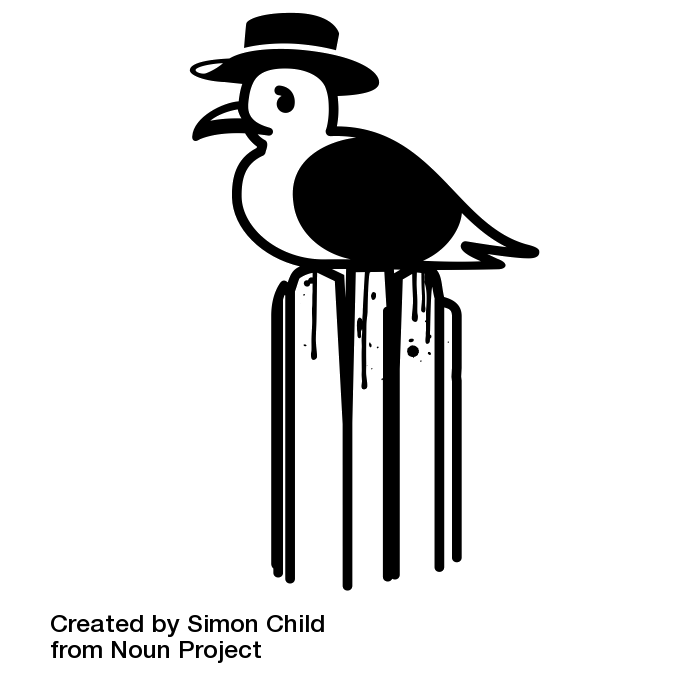It is battle tested, standardized, widely used, have open source servers and apps, end-to-end encryption (OMEMO), self-hostable and are low on ressources and federated / decentralized.
I use it with family and friends. Conversations and blabber.im on android and Gajim on Linux. There’s also apps for windows and Apple.
Curious if anyone here use it and why, why not?
EDIT: Doh. In these Lemmy times I forgot federated. Added.
It’s great, problem is adoption with non tech people. You clearly had better luck with your friends and family than most. It’s hard enough to get them to use something as standard as Signal.
Agree it’s easier to get techies on board. With normal people it is kind of a struggle competing and argumenting against the likes of WhatsApp, FB messenger and such. But I totally think it’s worth it because privacy.
I host my own XMPP server and I like it (super lightweight and easy to set up), but good god the people that work on XMPP stuff seem to not want it to take off at all. They all complain that everybody is using matrix for some mysterious reason and when you explain that you can’t in good conscience get your friends to switch to it because there aren’t really great iOS apps it’s just a hissy fit about how people should use android instead… which is just not very realistic. Really wish XMPP had a good cross platform client. The client situation is improving rapidly and OMEMO finally mostly works everywhere! But it’d be really nice if there was a consistent client between platforms.
That all sounds really critical, but I really do like XMPP and I really hope it gets better and gains more traction again! We really need good federated chat again, ideally just associated with an email address or something… because the current chat ecosystem is a mess!
We used to use it at work and I loved it but then eventually got replaced by slack which I am not a fan of.
deleted by creator
I see someone hasn’t used Microsoft Teams.
Or hipchat
Hipchat is XMPP. I used to connect to it in Pidgin.
I wish I knew that when we used it. I was using their client and it wasnt great. Slack was a welcome change when we switched
Hipchat was great before Atlassian sold it to slack
Even Microsoft Teams?
deleted by creator
Buggy, uses a ton of resources, super weird UI. I’ve said no in job interviews to companies who use Teams as their main communication platform. Slack is “fine”, but much better than Teams. At least it works, especially from Linux.
deleted by creator
Yep. And all complaints come from hackers/developers/programmers. Especially if you search Hacker News, you can find hundreds, if not thousands of comments where people just can’t stand of Teams at all.
Its not great, but its nowhere near half as bad as teams
absolutely it is, worst part I hate is I cant mute/block anyone. Just have to deal with that annoying douche yapping all day in chat.
We use Teams and friends at work, so I know the struggle.
I’ve been self-hosting Matrix for years and it’s been amazing.
My colleagues and I had set up a nice self-hosted XMPP server which everyone could use to chat in-house without any of the traffic leaving our network. We had it end-to-end encrypted and it was quick and easy. Then management (with the support of a few employees who like hype) switched us to Slack. It wasn’t private, it wasn’t end-to-end encrypted, all our confidential messages went out to the internet, the boss could technically read anything we wrote, and many people didn’t like the UI. Once management got frustrated with Slack they switched us to Microsoft Teams. After using that for a year, I miss Slack. Teams is a bloated buggy mess with a UI designed to confuse and no privacy, and it also has all the disadvantages of Slack.
A few of us have secretly switched to Matrix and Element. It’s good. Don’t tell management.
the boss could technically read anything we wrote
I guarantee this was a large part of why they forced the switch.
@floofloof I would love to move to Matrix/Element but don’t know a single person who uses it, so it doesn’t seem like it would much benefit me unfortunately. I do still have an account though.
Install some bridges. I’ve managed to remove all those third party chat apps from my devices and just use Matrix to chat to everyone whether they’re on Slack, Discord, WhatsApp, IRC, etc.
Can hyou point me on some good material to learn about them? I’ve been reading about those for years but never crossed a guide…
Take a look at this page for someone explaining how they moved from using Discord directly to using it via Matrix.
Thanks, it’s very useful, sadly it looks a bit like the stuff of nightmare prone to breaking at the worst possible moment…
It’s been rock solid for over three years for me.
Reminds me of a company I recently got an job interview to (and got declined, but I would’ve declined anyway).
They were switching around their software every year and are currently in the process of migrating to Teams
the boss could technically read anything we wrote
My old work actually ran into some issues because they couldn’t see DMs/private channels.
Maybe this is a cloud vs. self-hosted thing? It’s been a few years since I’ve worked there though.
In an average workplace that seems like a bit of a losing battle to fight since everyone can message each other on personal phones anyway. But I can see it if it’s a workplace that handles sensitive information and restricts the use of personal devices.
My workplace went remote-only. So they don’t really stand a chance of preventing us messaging each other on our personal devices. I do try to keep the work machine separate though.
the boss could technically read anything we wrote
That’s honestly a very reasonable ask. Employees should have no expectation of privacy while using corporate owned machines on a corporate owned network. They need to be able to keep tabs on communications in order to ensure company data doesn’t leak. It would be crazy to allow people to handle sensitive company data with no oversight.
We had an XMPP server at work but 90% of people wouldn’t bother using it. As much as I dislike Teams it the only client that’s ever been deployed in my company that everyone actually uses.
What I have to give to XMPP is that it’s one of the easiest federated services to self-host. Running Prosody is super simple.
Prosody is amazing and I’m still astounded by how easy it is to get XMPP up and running. That’s great stuff!
I had my own server and used it for a long time until Android decided that it knows better what background services I want to have running and thus killed the “instant” part of instant messaging.
Since then I’m on Signal and could at least convince most of my friends and family to move there.
It’s an ongoing problem on mobile, can be mitigated but yeah, it’s an issue
I’m still on irc
Irc is underrated. Its my example for people getting upset communities are moving to forums instead of the fediverse sometimes because its old that old does not mean outdated.
And don’t get me wrong, I really like this communication model, but I would never suggest it for a major software project community. I need things to be fully baked for official adoption. Part of my interest in contributing here is getting us enough critical mass that threadiverse development gets to that fully baked point
Also big fan of IRC. It has some of the same advantages as XMPP, and then some for group chat.
How does this compare with matrix?
TL;DR: Matrix is good for text AND binary data (XMPP is text only) but XMPP is a bit more centralized than matrix, though both work based on federation principles. XMPP is more lightweight but supports more config options.
Thanks!
The real core difference is that XMPP just passes messages around (and history is just bolted on as an extra thingy between you and your server), while Matrix is literally a federated database of message history.
It’s trivial to self host. I’m running a server on a small VPS for the family. Best part is they don’t even know they are running XMPP, just installed Conversations and that was it.
I switched to iOS from android a while ago, but conversations was an AMAZING app and I wish there was something even half as good on iOS. That said… isn’t it the case that conversations is a paid app on Google play, and only free on fdroid? It’s totally worth the $2 or whatever it was on Google play, but I feel like it’s a hard sell for normal people who are used to free chat apps? Did you have any problems with that, or has the situation changed since I last looked?
There is also Cheogram (conversations fork), which is actively developed/tweaked by the jmp.chat folks - very nice. Also Snikket (conversations fork) that is themed and tweaked to use with a snikket server, but it happily works with other servers.
Another interesting tidbit. Chromebooks integrate the Android runtime to run play store apps. Windows 11 is also kinda/sorta shipping an Android runtime, but not by default. You can also spin up an Android runtime on Linux. I tested the snikket android app on Windows 11 and ChromeOS - works perfectly. So, I suspect all conversations forks can run across Android, Windows, ChromeOS, and Linux platforms - pretty neat. Doesn’t solve the iOS gap and getting the runtimes going could use polish on Windows and Linux. And nothing against the other desktop apps in development, but the ability to essentially run the Android app against most major environments makes me want to contribute to that code base (if I had any ability to develop for android, that is).
Ah yeah, another fun fact is that Snikket on iOS is a rebranding of Siskin. On iOS Siskin seems to be the best option right now with the one caveat that push notifications won’t contain the content of OMEMO messages (I think the plan is to design and implement an encrypted push XEP?). Conversations is probably the best xmpp application out there, so I’ve been tempted to run it on Linux via the Android runtime in the past. These days I’m pretty happy with Dino.
I feel like we need something like converse.js on all platforms or something. Just something decent and consistent so you can recommend it to a friend on a different device and help them / understand their perspective, you know? I think converse.js has a desktop app via electron now, which seems like a start.
The standalone converse app was problematic when I tried it last. Also, there was a summer of code attempt at bringing jingle a/v sessions to converse, but it was never completed and nobody seems to have picked it up.
That’s a bit of a shame. I don’t personally find jingle that important, but it’d be great if it worked… Also OMEMO on converse is sort of in a weird state I think. AFAIK it still depends on a JS libsignal library that’s deprecated.
Yes Conversations is still a paid app on Play Store. The F-Droid version also doesn’t support Google cloud notifications so some message notifications will go missing occasionally. For Android there’s also Quickly which is a Conversations fork and aTalk which works OK but reminds me of 90s Windows software. It’s still quite usable though. Honestly Conversations is totally worth the money if only for the amount of effort gone into modernising the platform which also a testament to its extensibility.
Oh, I totally agree that conversations is worth the $4 or whatever. I just have a hard time convincing friends to switch over to a new chat application to talk to only me when it’s not even free for them, you know? And if it’s a less technical person getting them on fdroid is a tricky proposition too. I don’t begrudge conversations for charging, but I do think it would be easier to get people on XMPP otherwise.
I use it for OMEMO encrypted family messaging and image transfer (snikket). Very fast messaging, lightweight server, and the A/V works quite well. Biggest issue, imo, is the lack of a great iOS client - not a judgement on the developers, I think that’s just the reality of developing on iOS. But an iOS client that works as seamlessly as Conversations would go a long way to regaining lost traction.
This is what I’ve been saying for years. Siskin is pretty good these days, but it’s still not perfect (push notifications with OMEMO have no content). It’s really hard to recommend XMPP to people when the iOS experience is kind of bad (with omemo, anyway).
I cannot recommend Siskin, as those in my life that have tried it have always experienced random issues. I find Monal to be a better experience in every way, except for the lack of calling support with Conversations.
Monal is okay. It chews up battery and recently did some heinous crimes with group chat notifications so I’ve switched to Siskin. Either way… Neither app is perfect. Xmpp is decent on iOS now, but still a little lacking.
It’s the best obviously ;)
Check out: https://slrpnk.net/c/xmpp (which was moved from lemmy.ml as the community there is effected by a bug).
Also see: https://joinjabber.org/
I like XMPP and OTR is nice, but we need double-ratchet for secure communications and sync with multiple devices.
Omemo is double ratchet and my messages sync to multiple devices. New device can’t read old messages sent before exchanging keys with the other clients.
IIRC Google Talk using XMPP and most major messengers having GTalk integration, they pretty much accidentally federated several messenger apps
They took out XMPP years ago. I had a lot of hope for the future when they first federated. Even ran my own server and was able to talk to Google Talk users. Alas…
Embrace, Extend, Extinguish.
Google’s messaging play has only gotten worse since then. Oh well.
I still cannot believe the Google I/O where they killed Talk and said “we’re consolidating all of the Google chat applications into hangouts. There will only be hangouts” and then the very next Google I/O they announced TWO new chat applications (allo and duo), whose purpose I never understood, and then every year since they’re like “everything is Google meet now… no, not that Google meet, the other Google meet” and I have absolutely no idea what’s going on and nothing makes me feel so old and out of touch like trying to follow Google’s chat ecosystem.
I doubt it was accidental, that’s standard tech corp playbook. Build on established technology or open standard, then shut the gates when critical mass has been achieved.
I’d use it but theres no one to use it with




















